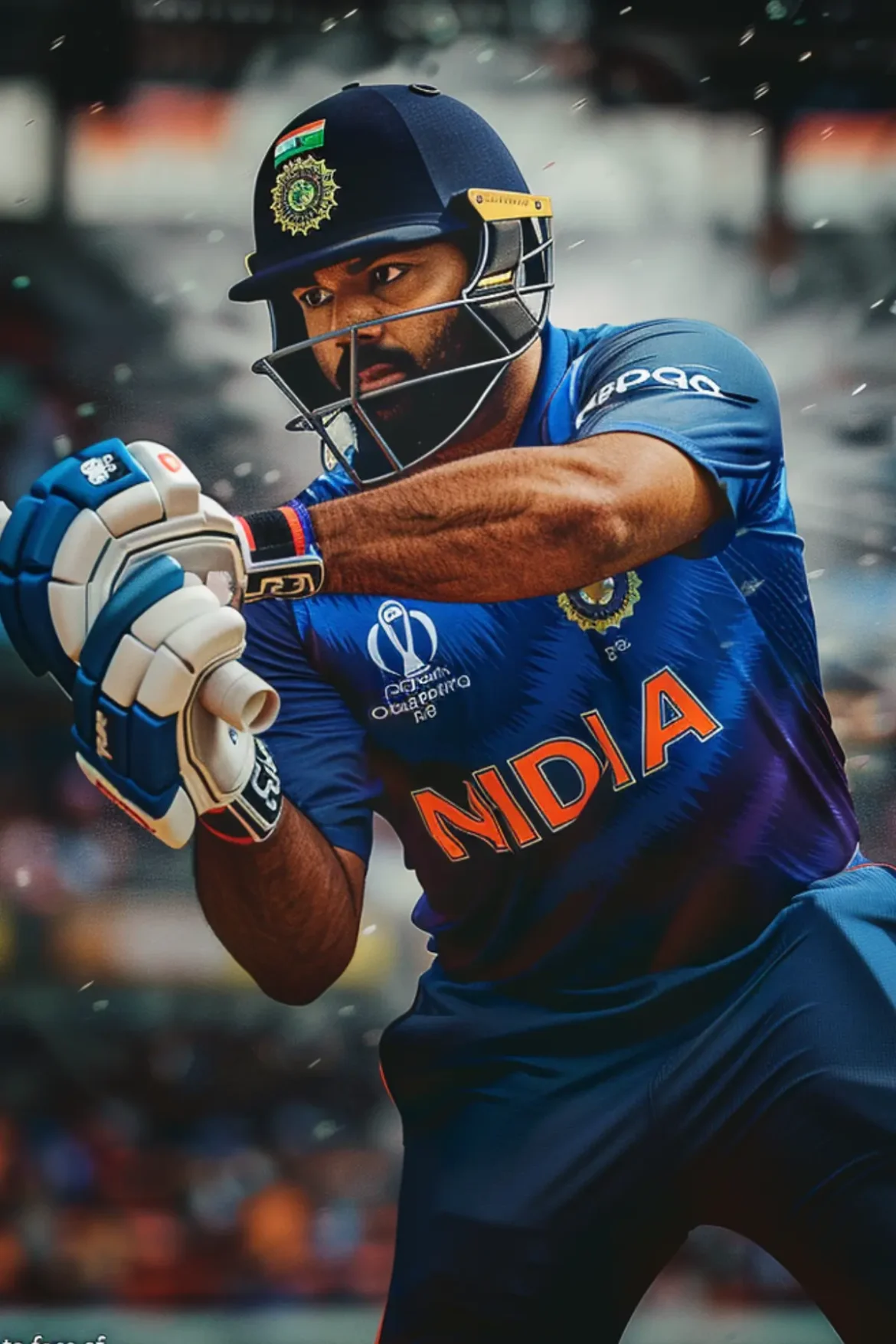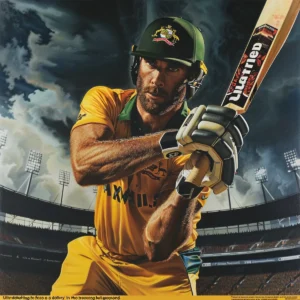When it comes to cricket, the Twenty20 or T20 format has redefined the game’s narrative, especially with the batsmen bashing deliveries to the fences with unprecedented power and frequency. Scoring a century in T20 is a rare feat, and those who have managed to achieve this milestone belong to an elite league of run-getters. In this blog post, we’ll deep-dive into the batting arsenals and impactful journeys of the top five Top T20 century makers who have scored the most centuries in T20 internationals.

Top Five T20 Century Makers That Matter
First and foremost, statistics lay the groundwork for understanding a player’s impact. We’ll dissect the numbers that reflect their dominance in the T20 arena.
“I had doubted a fair bit about my ability at this level, so to come out and strike the ball like I did was really pleasing.” Glen Maxwell
1. Rohit Sharma (India)
Career T20 Stats: 151 Matches, 3974 Runs, Avg: 31.79, Strike Rate: 139.97, 5 Centuries
Fondly known as the ‘Hitman’, Rohit Sharma’s T20 career boasts a commendable average and an impressive strike rate. His five centuries reflect a batsman who not only scores big but does it quickly, an essential trait in T20 cricket. An analysis of each century will reveal the nuances of his game – whether it’s a counter-attacking inning or a fluent, run-fest where he dictates terms from the first ball.
2. Glenn Maxwell (Australia)
Career T20 Stats: 106 Matches, 2468 Runs, Avg: 30.9, Strike Rate: 155.5, 5 Centuries
Maxwell’s stats speak volumes about his impact. A strike rate over 160 is a testament to Maxwell’s unparalleled ability to accelerate the run rate. His five centuries have likely swayed the course of many matches, and we’ll dissect key performances to understand how they’ve turned the tide for his team.
3. Suryakumar Yadav (India)
Career T20 Stats: 60 Matches, 2141 Runs, Avg: 45.5, Strike Rate: 171.11, 4 Centuries
Suryakumar’s stats, albeit from a less extensive career, are no less impressive. His average, once adjusted for strike rate, reflects a batsman capable of high-impact innings. The timing of his centuries within a burgeoning career mirrors an exciting ascent to the top order.
4. Sabawoon Davizi (Czech Republic)
Career T20 Stats: 31 Matches, 1149 Runs, Avg: 41.00, Strike Rate: 138.93, 3 Centuries
Perhaps the most intriguing entry in our top five, Davizi’s records are not just personal milestones but a testament to the burgeoning talent in developing cricketing nations. His approach to batting and match situation will provide interesting perspectives on how he’s managed to reach this milestone.
5. Babar Azam (Pakistan) and Aaron Finch (Australia)
Career T20 Stats ( Babar Azam ) : 109 Matches, 3698 Runs, Avg: 41.00, Strike Rate: 138.93, 2 Centuries
Career T20 Stats (Aron Finch): 103 Matches, 3120 Runs, Avg: 34.28, Strike Rate: 142.53, 2 Centuries
Both Aaron Finch and Babar Azam have scored two centuries each in T20 internationals. While their stats reflect their power and poise at the crease, a deeper analysis will reveal how these innings have influenced the T20 game, especially in the context of their respective teams and international cricket rivalries.
Unraveling Playing Styles of T20 Century Makers
Beyond the numbers, understanding the players’ styles provides a more holistic view of their cricketing prowess. Each of our top five players has a distinctive approach to the game.
The Hitman’s Mastery
Rohit Sharma’s elegance and power make him a classical act in the T20 circus. His effectiveness against the new ball and astute understanding of pacing an innings can be dissected to reveal the strategic undertones of his method.
Maxwell’s Unorthodox Innovations
No T20 discussion is complete without tipping the hat to Glenn Maxwell’s audacious and innovative strikes. His ability to play strokes all around the ground requires a deep analysis of technique and timing that separates him from the pack.
Suryakumar’s Fearless Brand of Cricket
Suryakumar Yadav’s fearless cricket and the sheer breadth of his shot-making injects an element of excitement into every innings. His unconventional yet effective approach is a modern T20 batting case study.
Davizi’s Power-Hitting Spectacle
Despite playing for a less high-profile national team, Sabawoon Davizi’s ability to exhibit power-hitting against various bowling attacks is a fascinating case for encouraging talent development in all cricketing nations.
Finch and Azam’s Buccaneering Heroes
Having paved the way for many young cricketers through their undeniable talent and leadership, Finch and Azam’s styles highlight the contrasting routes to T20 success – one through pure force and the other through sheer classical elegance.
Insightful Comparisons and Rivalries
Each of these century-makers has contributed to creating or being a part of iconic T20 rivalries. Their individual tussles with opponents and sometimes with each other have added layers of drama to the game that are ripe for exploration.
Rivalries That Defined Eras
Rohit Sharma’s encounters with top bowlers and Maxwell’s unyielding battles against longer fields often set the stage for compelling contests. We’ll analyze these instances to glean vital points about preparation, adaptability, and sheer cricketing acumen.
Clash of the Titans
From Yadav’s steely encounters with premier bowlers to Davizi’s slugfests against the best of associate cricket, these confrontations provide a bird’s-eye view of how personal performances can impact team dynamics and international rankings.
The Team Player’s Dilemma
The delicate balance between individual achievement and team glory is one that all these batsmen have faced in their careers. We’ll unravel how they’ve managed to imbibe this ethos in their approach and play.
The Future of Centuries in T20
Speculating about the future of T20 centuries in the international circuit, especially in the context of these players’ careers, provides valuable insights. What can we expect from these players in the twilight of their careers, and who are the aspiring centurions ready to carry the torch forward?
Sharma, Maxwell, and the Gen Next
The continuance of Rohit Sharma and Glenn Maxwell’s prolific centuries and their guidance of a new breed of T20 batsmen will shape the future landscape of the game. We’ll shine a spotlight on potential successors who are already emulating their styles or forging new paths.
Yadav, Davizi, and the Minnows’ Surge
Suryakumar Yadav embodies the rising middle order of T20 cricket, and Davizi’s record-breaking innings open the gates for associate nations. Our focus on these up-and-coming stars will highlight not just personal talent but also the richness of cricket across the world.
Finch and Azam: Setting Standards
Finally, a discussion on the expected frequency and quality of centuries from Aaron Finch and Babar Azam will inevitably lead to gauging their roles in the cricketing eco-system. What they do or do not achieve will have reverberations in their entwined international careers and T20 legacies.
For enthusiasts, learners, and cricket admirers across the globe, this blog post aims to offer a rich and immersive narrative that not only relives the glorious moments of these maestros but also discerns patterns, practices, and principles essential to the art of T20 batting.
FAQs
Q: Who are the top five T20 century makers?
The top five T20 century makers are :
1. Rohit Sharma ( India)
2. Glen Maxwell (Australia )
3. Suryakumar Yadav ( India )
4. Sabawoon Dvizi ( Czech Republic )
5. Babar Azam ( Pakistan ) & Aaron Finch (Australia )
Q: Who has scored the most T20 international centuries?
Historically, the record for the most T20 international centuries is subject to change as current players continue to participate in matches and potentially score more centuries. At any given time, checking the latest cricket statistics websites will provide the most up-to-date information.
Q: What makes T20 cricket different from other formats?
T20 cricket, known for its short and fast-paced nature, emphasizes aggressive batting and scoring runs quickly, often leading to thrilling matches that are decided in just a few hours. It contrasts with the longer formats of the game, such as One Day Internationals (ODIs) and Test cricket, which have a more strategic and endurance-based approach.
Q: How do players adapt their batting style for T20 cricket?
Players often adopt more aggressive and innovative batting techniques in T20 cricket. Consequently, they aim to maximize run-scoring opportunities in the limited overs. This includes using unorthodox shots, taking greater risks, and maintaining a high strike rate throughout the innings.
Q: Can T20 performances influence a player’s selection in other formats?
Yes, exceptional performances in T20 cricket can influence a player’s selection in other formats. However, selectors also consider a player’s technique, adaptability, and overall suitability for longer formats of the game.
Q: Are T20 centuries more challenging to achieve than in other formats?
While the shorter format of T20 cricket provides fewer balls to face, which could make scoring centuries more challenging, the aggressive nature of the game and fielding restrictions in the opening overs can offer opportunities for high-scoring. The challenge varies based on the match conditions, the opposition, and the individual player’s skill.
Q: How has T20 cricket impacted the global cricketing landscape?
T20 cricket has significantly broadened the sport’s appeal and reach, attracting larger audiences worldwide with its dynamic and entertaining format. It has also contributed to the development of cricketing skills, particularly in batting and bowling innovations, and has led to the rise of domestic T20 leagues globally, providing more opportunities for players.




